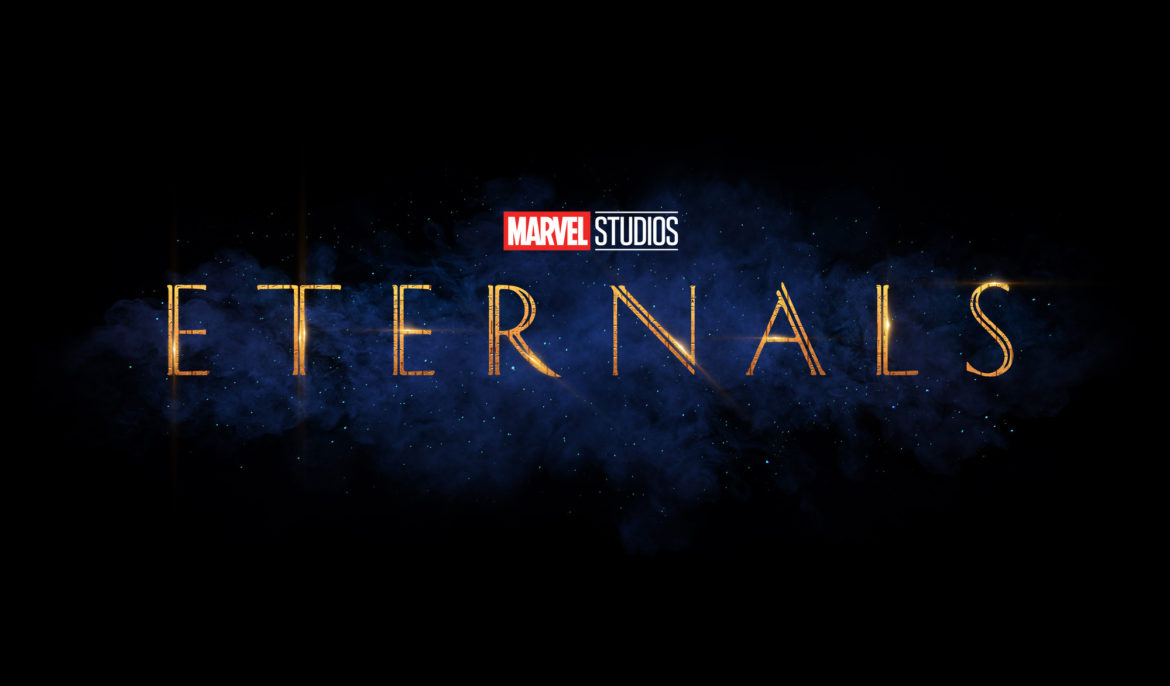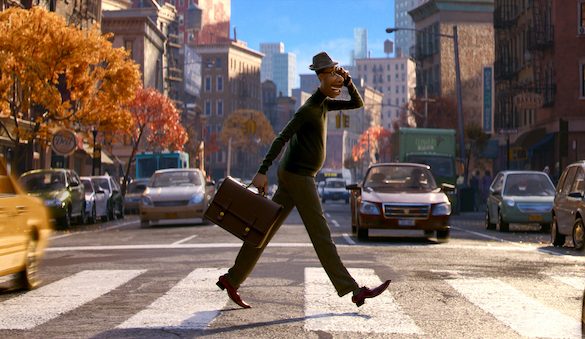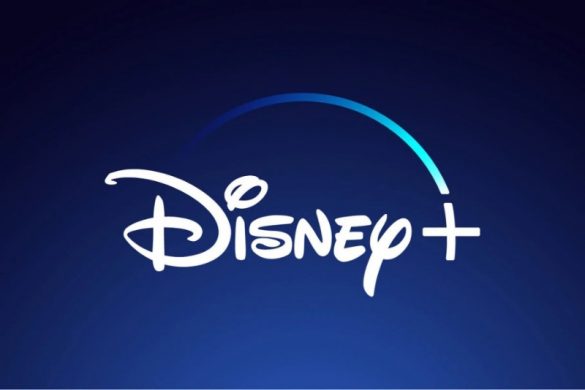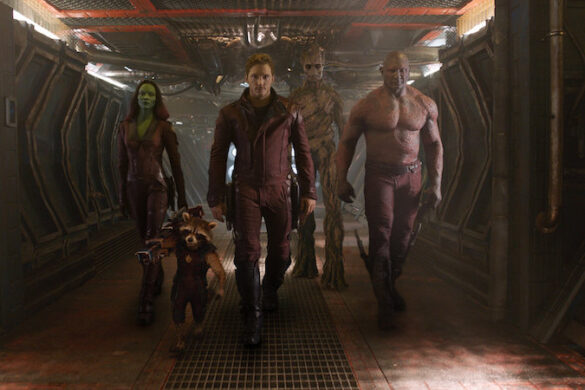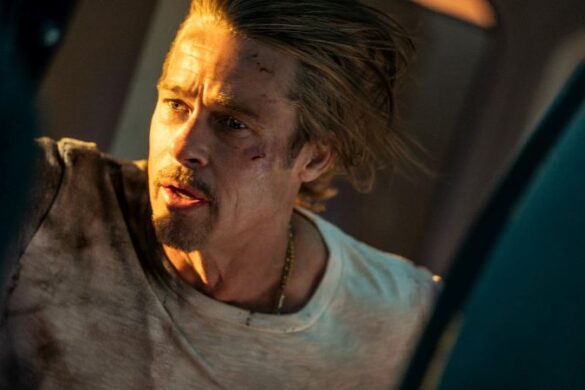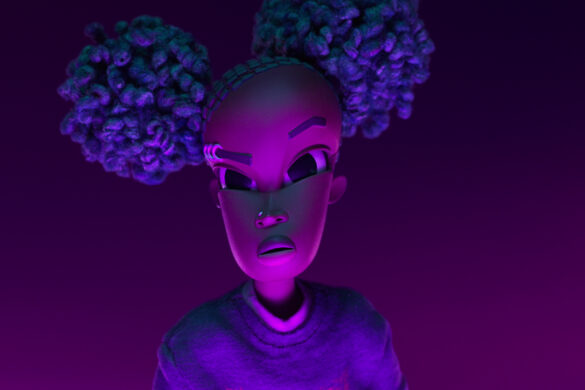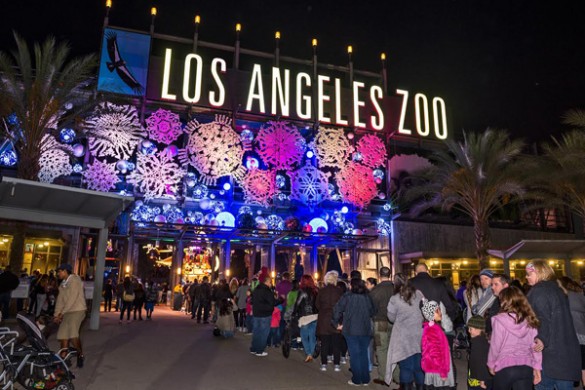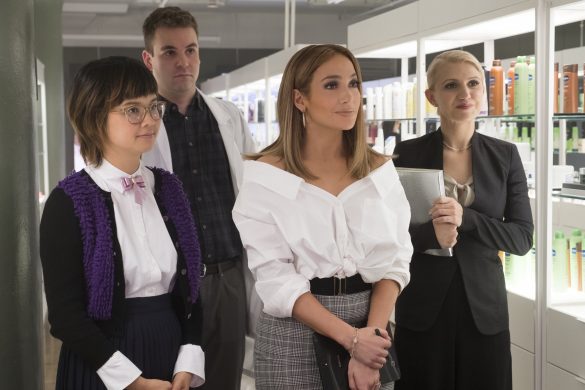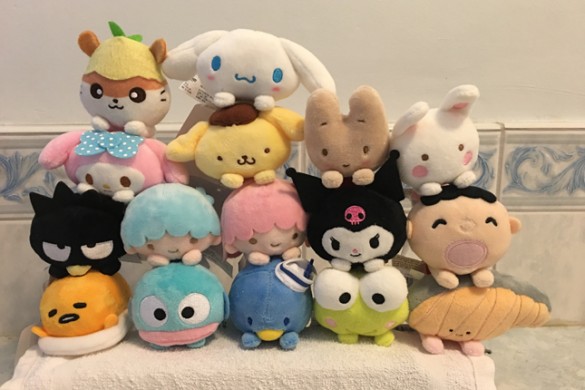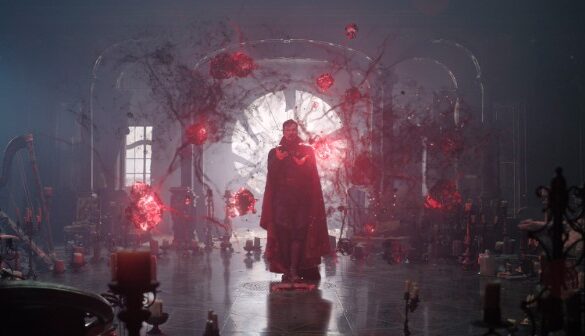As Marvel Studios enters the next phase of the MCU, it will have new visionaries to help tell exciting stories of unknown heroes saving the day while also expanding the universe as we know it. But rather than have the conventional hero versus villain tale unfold, Academy Award winner Chloe Zhao offers an ambitious character-driven drama that examines the idea of an immortal alien dysfunctional family while also challenging the superhero morality through the lens of the MCU. Though somewhat flawed in its approach, Zhao’s Eternals proves that to push the boundaries of the MCU, you need to take some bold risks.
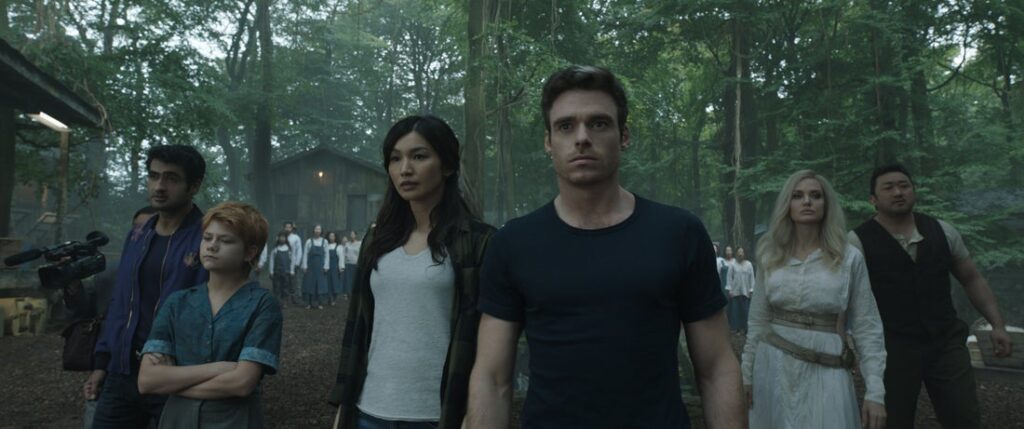
“Eternals” bounces back and forth throughout time and space. It starts 7,000 years ago with the dawn of man, with the all-powerful Celestial Arishem the Judge, creating the Eternals to protect humanity from the deviants, their evil counterparts. Led by Ajak (Salma Hayek), the Eternals are instructed not to interfere with the affairs of humans unless deviants are involved. Though they suppress the deviant threat, they cannot do anything about the human bloodshed, chaos, and destruction throughout the following years. But when the Avengers undo Thanos’ genocide with the snap of their fingers, the Eternals come out of hiding to prevent a new apocalyptic threat known as the “emergence.”
But with the Eternals separated from each other and thought long lost to history, the empathetic Sersi (Gemma Chan) and old soul Sprite (Lia McHugh) must reunite their scattered family to defend humanity again.
There’s no doubt that “Eternals” is one of Marvel’s most ambitious efforts to date as it attempts to tell an epic superhero story that’s filled with a lack of recognizable superheroes. However, Zhao is no stranger to weaving the human experience into her films. As such, it makes “Eternals” even more compelling as it centers on these cosmic beings searching for their place in the world and grappling with emotions that are beyond their understanding.
The epicness of this film matches its massive scope. Because the film takes place between different periods, it has a lot of ground to cover. Going back and forth throughout 7,000 years allows us to see the individual Eternals’ contributions to humanity. While the Eternals themselves may not have been able to meddle in human affairs like stopping war or Thanos, they could still help guide humans. For example, the empathetic Sersi, who connects with the humans on an emotional level. She can turn immaterial into elemental benefits like water or plants. Phastos (Brian Tyree Henry) offers his inventions to help with agriculture and technology. The aloof Druig (Barry Keoghan) can deter war simply by manipulating the minds of others. Though considered a prankster, Sprite can create life-like illusions as a weapon to fight the deviants or use it as a storytelling tool for entertainment. And then there’s Ajak, the Eternals matriarch who heals her children and is the only one who can communicate with Arishem.
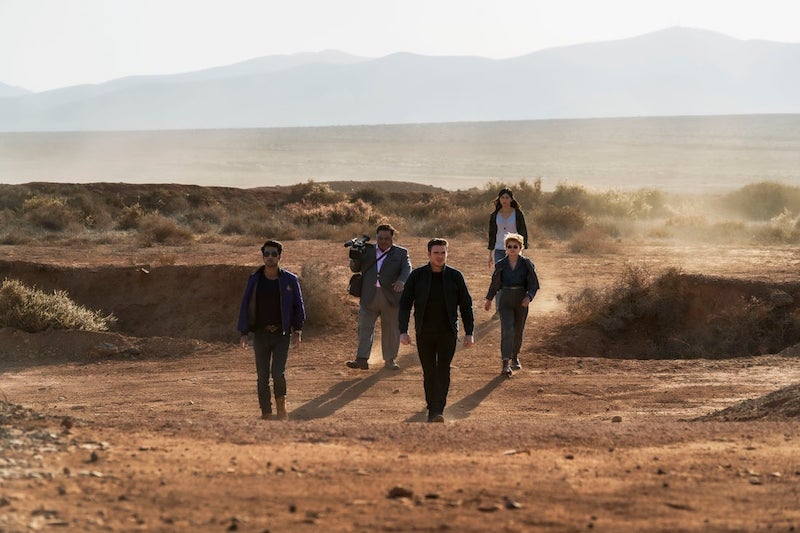
If Sersi, Phastos, Druig, Sprite, and Ajak are the brains of the operation, then its remaining members are considered as the muscle. There’s the dutiful soldier Ikaris (Richard Madden), the powerful and charismatic Kingo (Kumail Nanjiani), the super speedy Makkari (Lauren Ridloff), the super-strong Gilgamesh (Don Lee), and the almighty Thena (Angelina Jolie). But no matter if they are the brains or brawn, the Eternals’ contributions have left some impact that would help shape the MCU to what it is now.
Of course, seeing the Eternals impact and the ten individual contributions isn’t easy to do in over 2.5 hours. Though Zhao creates some much-needed drama by interjecting internal politics to create a rift amongst the family that would eventually lead them to split apart, there simply isn’t enough time to have us care about the reunion efforts because it has to distinguish ten characters and create stakes, all the while playing within the Marvel sandbox. But, she addresses those individual arcs through a series of historical vignettes that gives an audience a chance to see those individual Eternals during that specific moment in time. While that may work for certain character arcs independently, it doesn’t mesh well as it should when put together.
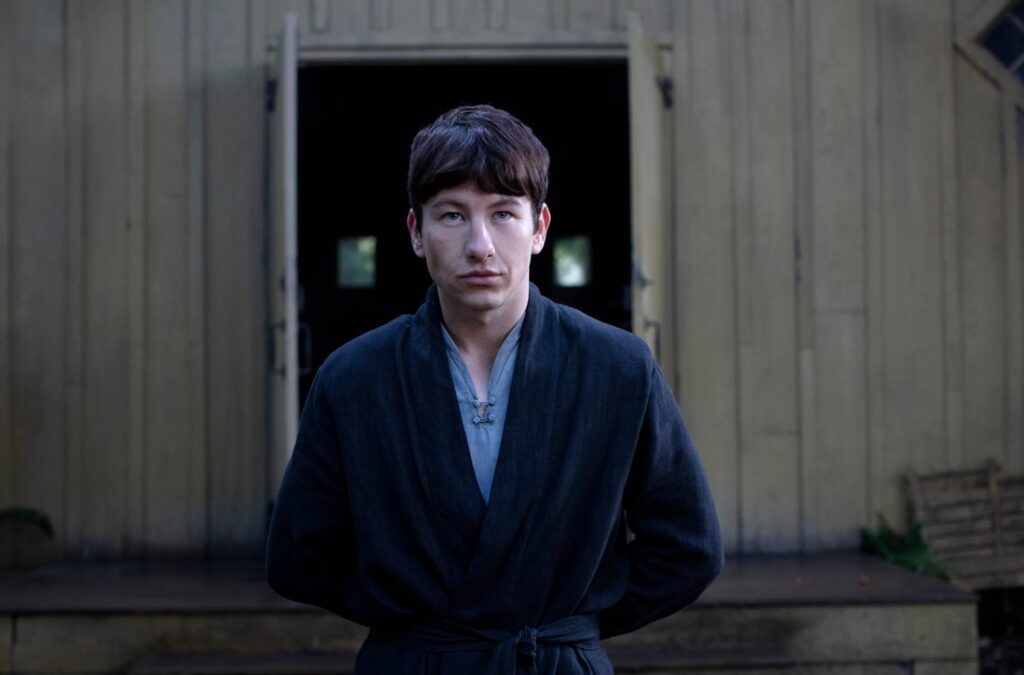
Still, there is something to be said about how those internal politics affects the Eternals themselves. Though they came to earth with good intentions, they cannot interfere with other human affairs, which frustrates the aloof Druig, who wants nothing more than to give humanity the utopia it deserves, even if that utopia comes at the cost of their free will. “Eternals” also visualizes the absolute despair that the Eternals suffer when they see their gifts misused as tools of war. And that couldn’t be truer for Phastos, who, even though he’s an immortal who saw his good works be perverted, still believes in love and family.
So, Zhao’s ambitious approach to “Eternals” breaks new ground in Marvel storytelling by offering a much more character-driven drama that celebrates the human spirit. It’s a refreshing take on these films that are uniquely genre-bending but formulaic. Not only does she have a diverse cast to work with, but the film is an opportunity for marginalized communities to see themselves as the heroes of their own stories.
Previous Marvel films have shown the importance of representation and how the larger audiences crave diversity in comic book movies, “Eternals” uses its diverse and uniquely powered titular characters to portray a modern-day dysfunctional family. Each of them fulfilling a distinct role, and all differ in how they believe they should protect humanity from themselves and the deviant threat.
And to tell that story with diverse characters from marginalized communities allows Marvel’s fanbase to see themselves as the heroes that appear on screen. That kind of meaningful representation is hard to come by in mainstream films or superhero blockbusters like “Eternals.” For too long, those within marginalized communities have played as villains to help drive the hero’s story or helpless victims who have a role but require the hero to save them. Zhao’s film offers those underrepresented to see themselves as heroes of their own stories. For instance, Makkari’s deafness isn’t presented as a disability but rather a superpower. Seeing the beauty of sign language in a blockbuster superhero film of this size is impactful. But, of course, it would be more remarkable had she gotten ample screen time.
And divvying screentime for these characters can be a challenge for these superhero ensembles, especially when they are unfamiliar characters. So while that may have worked for some of the more prominent ensembles like the “Avengers” films or “Captain America: Civil War,” they all had the benefit of having prior films to build off of. Unfortunately, the same cannot be said for “Eternals,” which has to juggle 11 characters and tell a story, establish stakes, and create consequences in 157 minutes. It’s not an easy challenge, and the execution could have been a bit more refined, but Zhao’s direction and her grand-scale vision make “Eternals” an enjoyable watch – especially if you see it on IMAX.
But there are times where “Eternals” can feel like it is at war with itself as it attempts to tell this story of a dysfunctional cosmic family that exists within the MCU sandbox. Furthermore, it becomes even harder to follow when the film feels disconnected from everything else. The rules established by Ashriem and Ajak prohibit the Eternals from meddling in human affairs, which justifies their absence from significant events that occurred in the MCU
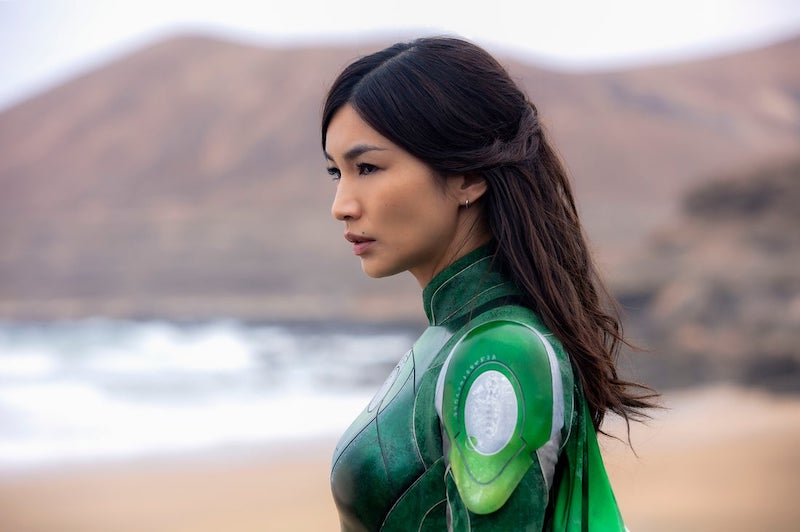
Though “Eternals” is an ensemble film that centers on reuniting a broken family, it is Sersi’s story to tell. The reluctant leader is the perfect person to follow on this journey as her free spirit and her empathy and kindness allow her to connect to the humans in ways that her brothers and sisters can’t. When combined with a solid emotional performance, Chan displays a quiet strength that lends herself to being a capable hero and, more importantly, a human.
The beauty of “Eternals'” character-driven approach is that it stays true to Zhao’s sense of storytelling and strikes a superhero balance through the use of stunning visuals and explosively charged action sequences to keep everything textbook Marvel. But the film suffers from a convoluted plot that keeps everything from moving smoothly. Often it can feel like the film is at war with itself as it has three different stories to tell, from Sersi reuniting her family, saving the world, and other personal struggles each of the characters may be dealing with. Add to that the unsuspecting twists and turns, and it can be a bit confusing and frustrating.
The humanist drama of the Eternals’ identity crises conflicts with the convoluted plot of the titular characters trying to save the world from its impending doom. And because there are 11 characters in this ensemble, there isn’t enough screen time to go around to explore the family dynamics and the individual members on a deeper level. Still, the cast makes do with the material.
Originally written as a man in the comics, Hayak’s Ajak leans into the character’s femininity and acts as the Eternals’ matriarch. She heals her children’s injuries and offers them motherly advice whenever they struggle with the idea of not interfering with human affairs. But being the only one who communicates with the Celestials makes it difficult for her to be honest with her family. As such, her contradictions make her a complicated character.
Madden’s Irkaris serves as the dutiful soldier with a singular focus who lacks a personality. His decisions are driven by love. And his long-term relationship with Sersi often conflicts with his duty to the mission. But, again, because “Eternals” is so busy establishing a story for these new characters, there isn’t enough time to give all of them depth. As such, Ikaris comes off as a one-dimensional character, with Madden lacking the chemistry needed to make his character’s relationship with Sersi believable.
Nanjiani’s Kingo is not only the comic relief in the film. He also provides a small slice of the character’s global impact by introducing a Bollywood number into the film. But, powerful as he is, it’s funny to see the character emulate classic suave movie heroes like Zorro or actors like Errol Flynn. It’s a welcomed addition to the MCU that finally lets South Asians feel like they are also a part of something, even if it’s only for a few minutes. And Harun (Harish Patel) adds to the humor as Kingo’s manager.
“Eternals” also marks the first time Marvel Studios introduced an openly gay superhero into the MCU. Henry’s Phastos’ views the world as a collective and sees how his inventions may benefit humanity. But given how human history is wrought by war and bloodshed, Phastos loses faith in the very people who he’s sworn to protect. But that faith is restored when he meets his husband (Haaz Sleiman), and starts a family with him. And it’s not a sanitized depiction, but one that hopefully holds great meaning and will normalize in future MCU films.
Another relationship that “Eternals” explores is between Jolie’s Thena and Don Lee’s muscular Gilgamesh. As the Goddess of War, Thena is one of the Eternals’ most elite warriors and has the power to manifest weapons out of thin air. But years of fighting the Deviants have left Thena struggling to find peace of mind. All Thena knows is war, and her trauma makes her a danger to everyone around her. So when she decides to exile herself, Gilgamesh steps in to ensure that she isn’t alone. As the Eternals’ protective big brother, he’s developed a deep connection with Thena and promises to remain by her side, even if she is a danger to him.
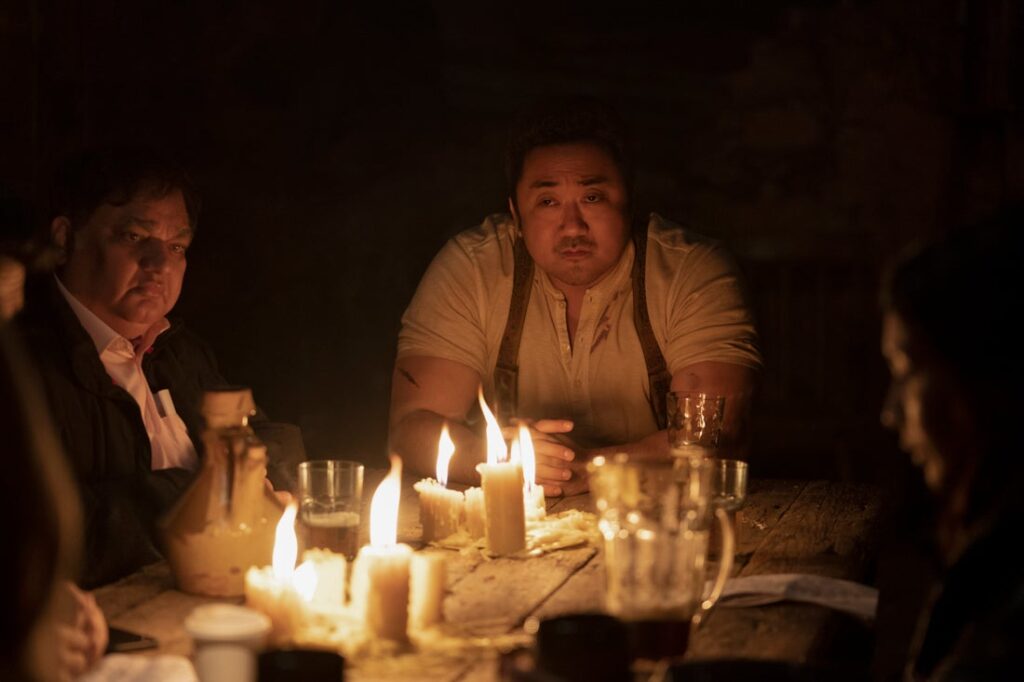
Seeing that kind of power and vulnerability in Thena, as well as strength and humor Gilgamesh, makes me wonder what kind of film we could have got if there was more screentime for them or even an entire movie dedicated to them.
McHugh’s Sprite may be the youngest looking member of the Eternals family, but she is an old soul who uses her powers of illusion to confuse the deviant enemy or tell stories to the humans. Though her struggles may be resonating, she still has this wonderment of a child and expresses her emotions in a sassy way. But her maturity tells us that she’s lived just as long as anyone her fellow Eternals, which makes her frustrations for being treated as a child clear.
Then there’s Kit Harrington’s savvy Dane Whitman, who is in a romantic relationship with Sersi. Whitman doesn’t seem to have a care in the world that Sersi has such a history, even though she isn’t fully open about it – as noted by his cute persistence to get her to move in with him. Though Marvel fans know Whitman’s significance in the comics, the film plants the seeds for the character’s bigger future with the MCU as the Black Knight.
But “Eternals” has other ways of finding humanity in something that feels out of this world. Much of that is achieved through Zhao’s naturalistic style and shooting on location instead of using large soundstages with CG backgrounds. While cinematographer Ben Davis uses his MCU experience to keep things within that universe, Zhao’s frequent cinematographer collaborator Ben Davis acted as the film’s camera operator to help it stay true to her vision. Together, all three create something that doesn’t feel like a traditional superhero movie.
“Eternals” may lack in a few key areas but has ambition and heart, with a distinct style that remains true to the director’s voice. To say that film is epic in both size and scope would be a vast understatement as it shows just how expansive the MCU is and how minor cosmic characters can be when they are opposite their Celestial superiors. Unapologetic about trying bold risks, “Eternals” ushers in a new age of expanding the MCU. Because the beautiful story of cosmic immortal beings discovering their identity that Zhao is telling through awe-inspiring visuals and camerawork is that kind of thing Marvel Studios needs to do more of to keep the MCU an exciting place to revisit.
7.5/10

